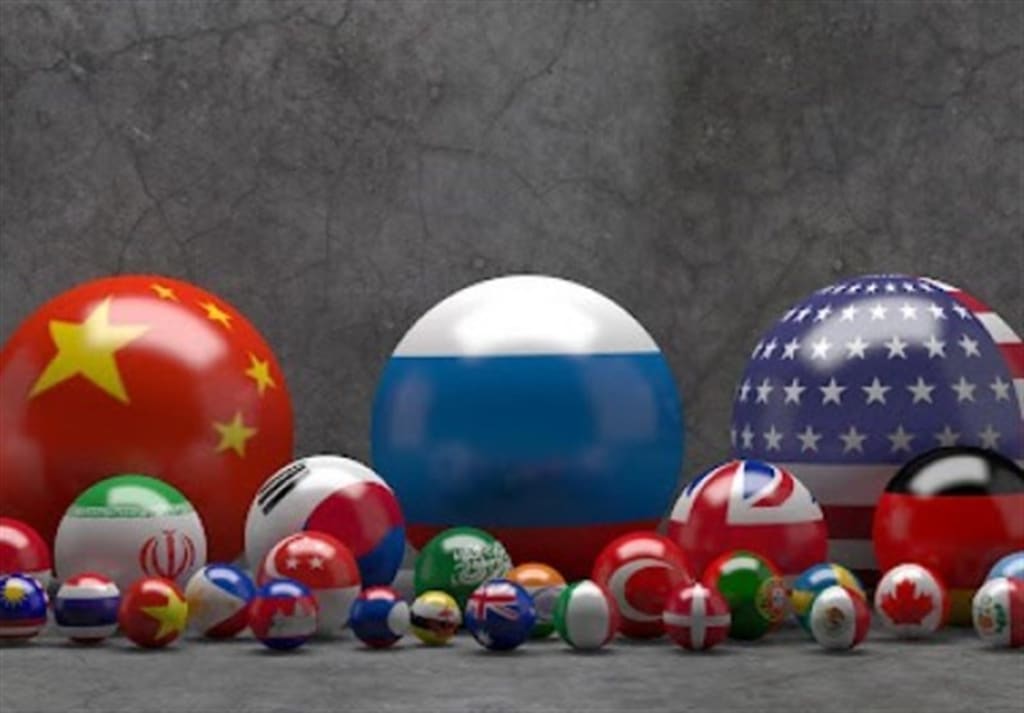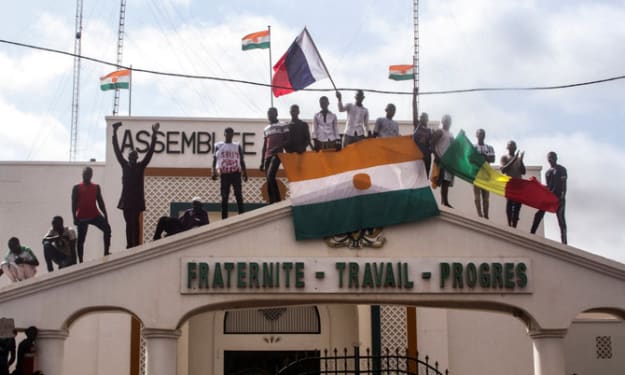
In the dynamic landscape of global politics, the 21st century has witnessed a transformative shift towards a multipolar world. Traditionally, the world order was dominated by a bipolar structure, with the United States and the Soviet Union as the primary superpowers during the Cold War. However, the collapse of the Soviet Union in the early 1990s marked the end of a bipolar system, giving rise to a unipolar world led by the United States. This unipolar moment was characterized by American hegemony, where the U.S. held unprecedented influence over global affairs.
However, the unipolar order was not destined to last forever. As the new millennium unfolded, several geopolitical, economic, and technological shifts began to shape a new reality—a multipolar world. In a multipolar system, power is distributed among multiple major players, each possessing significant influence over global affairs. This paradigm shift has implications for international relations, security dynamics, economic cooperation, and global governance. This article explores the key drivers and implications of the emerging multipolar world.
One of the primary drivers of a multipolar world is the economic resurgence of emerging powers. Nations like China, India, Brazil, and Russia have experienced rapid economic growth, transforming them into major players on the global stage. The shift in economic power from the West to the East has challenged the traditional dominance of Western nations and led to the rise of new economic blocs. China, in particular, has emerged as an economic powerhouse, becoming the world's second-largest economy and a key driver of global trade and investment.
Advancements in technology have reshaped the global landscape, enabling greater connectivity and information dissemination. The digital revolution and the rise of the internet have facilitated cross-border communication, trade, and cooperation. Technological advancements have also enabled the proliferation of cyber capabilities, creating new dimensions of power projection and influencing state behavior. Countries with advanced technological capabilities have gained a competitive edge, further contributing to the multipolarization of power.
Traditional alliances and partnerships have been evolving, as countries seek to diversify their international relations and expand their diplomatic engagements. New regional alliances have emerged, such as the BRICS (Brazil, Russia, India, China, and South Africa), promoting cooperation and coordination among major emerging economies. Additionally, organizations like the Shanghai Cooperation Organization (SCO) and the African Union have gained prominence, providing platforms for regional collaboration and influence.
The emergence of new and complex security threats has necessitated a collective response from nations. Challenges such as terrorism, cyberwarfare, climate change, and pandemics require global cooperation and coordination. No single country can effectively tackle these threats alone, leading to the formation of new security partnerships and coalitions. As a result, power is distributed across various nations and organizations, giving rise to a multipolar security landscape.
In a multipolar world, power balancing becomes a crucial factor in international relations. Major powers constantly assess and recalibrate their strategic interests to maintain influence and counterbalance the growing capabilities of other nations. This competition for power and influence can lead to regional rivalries and conflicts, necessitating a delicate balancing act to avoid escalation.
With multiple major players, the world witnesses a diverse range of leadership styles and governance approaches. Each nation or bloc brings its unique values, interests, and priorities to the global arena. Consequently, finding common ground and fostering cooperation can be challenging, as divergent perspectives on international issues arise.
Economic interdependence becomes more pronounced in a multipolar world. Nations recognize the importance of mutual economic cooperation to foster stability and growth. However, this interdependence also creates vulnerabilities, as economic disruptions in one region can have ripple effects across the globe. Managing economic relations and trade disputes becomes a complex task in this interconnected world.
A multipolar world demands an evolving global governance framework that accommodates the interests and aspirations of multiple stakeholders. International institutions, such as the United Nations, the World Trade Organization, and regional bodies, face challenges in adapting to the changing geopolitical landscape. Reforming these institutions to be more inclusive and representative of emerging powers becomes imperative for effective global governance.
Multipolarity provides opportunities for regional powers to exert influence and play a more active role in conflict resolution. Regional organizations and alliances become important platforms for addressing regional security challenges and mediating disputes. Effective regional cooperation can contribute to peace and stability in different parts of the world.
The emergence of a multipolar world marks a transformative shift in the global geopolitical landscape. The economic resurgence of emerging powers, technological advancements, shifting geopolitical alliances, and evolving security threats are among the key drivers of this transformation. A multipolar world brings both opportunities and challenges, as countries seek to balance power, cooperate economically, and navigate diverse governance styles.
Addressing the implications of multipolarity requires enhanced diplomacy, cooperation, and a commitment to multilateralism. Nations must collaborate to find common ground on global issues and work towards a more inclusive and representative global governance structure. As the 21st century progresses, the world will continue to witness the complexities and dynamics of a multipolar world, shaping the future of international relations and global stability.
About the Creator
Suganthan
Hi world! I am from Wonder of Asia Srilankan. Happy to write stories and History blog.






Comments
There are no comments for this story
Be the first to respond and start the conversation.